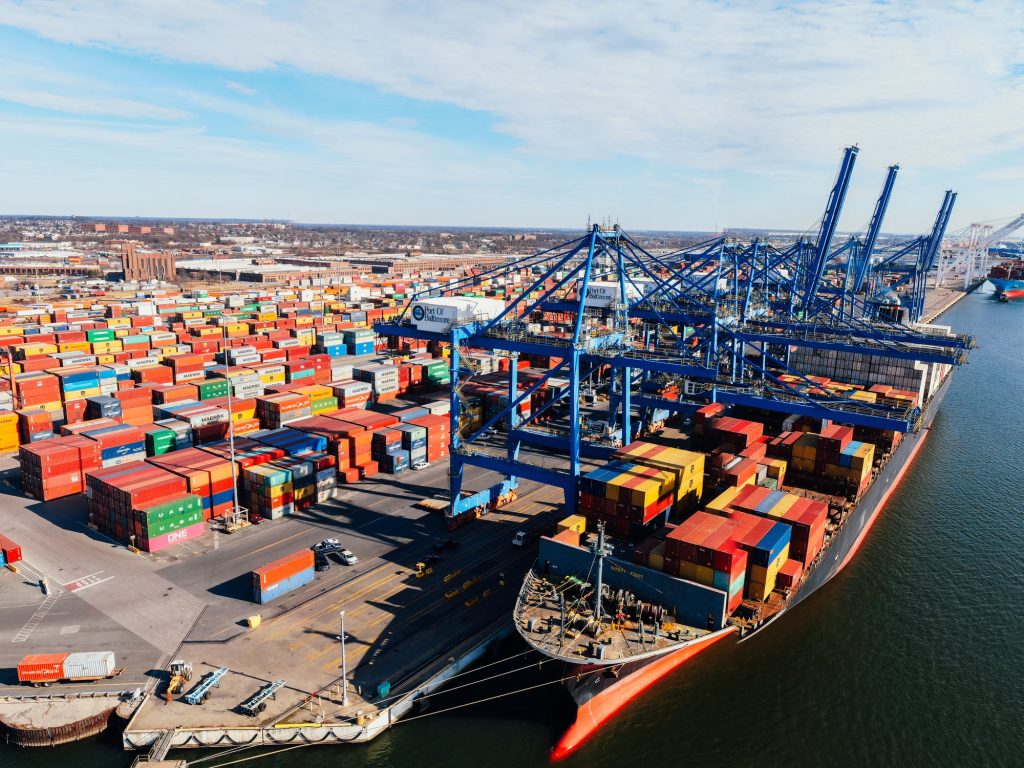
Shipping goods from China to the Falkland Islands requires navigating a remote archipelago’s logistical challenges, strict customs protocols, and unique trade dynamics. As a British Overseas Territory in the South Atlantic, the Falklands demand specialized expertise to ensure compliance with UK regulations, efficient routing, and timely delivery. Whether importing machinery, agricultural equipment, or consumer goods, partnering with a freight forwarder ensures seamless cross-border operations. This guide unpacks key considerations, from shipping methods and customs requirements to risk mitigation strategies.
- Shipping Methods: Ocean Freight as the Primary Option
The Falkland Islands’ remoteness limits shipping options, making ocean freight the most viable choice for most imports:
- Ocean Freight:
The primary mode for 99% of shipments, ocean routes typically transit via Montevideo (Uruguay) or Punta Arenas (Chile) to Stanley, the capital. Transit times range from 30–45 days for full container load (FCL) shipments. Smaller cargo may require transshipment via regional hubs. - Key Ports: Stanley’s Port Stanley handles limited bulk cargo; most goods arrive via Montevideo.
- Pro Tip: Plan shipments 6–8 weeks in advance to account for weather delays and transshipment bottlenecks.
- Air Freight:
Rare and costly, air routes connect Chinese hubs to Punta Arenas (Chile) or Montevideo, followed by short-haul flights to Stanley. Ideal only for high-value, time-sensitive goods (e.g., medical supplies).
- Customs Compliance and Documentation
The Falklands follow UK customs regulations, administered by the Falkland Islands Government (FIG). Essential documents include:
- Commercial Invoice: Detailed item descriptions, value, and harmonized system (HS) codes.
- Bill of Lading (B/L): Issued by the carrier, specifying cargo details.
- Certificate of Origin: Confirms manufacturing country; benefits from UK-China trade agreements if applicable.
- Phytosanitary Certificate: Required for agricultural or timber products.
- SENI Declaration: Single Entry Online Notification via FIG’s customs portal.
The Falklands impose UK-equivalent tariffs (average 0–10%) and strict biosecurity measures. A freight forwarder manages SENI filings and ensures compliance with UK/EU sanitary standards.
- Challenges and Solutions for Falklands Shipments
A. Remote Geography and Infrastructure
- Stanley’s port lacks deep-water berths, limiting cargo size and requiring careful planning for oversized equipment.
- Solution: Partner with forwarders experienced in transshipment via Montevideo or Punta Arenas. B. Weather Vulnerabilities
- South Atlantic storms (June–August) disrupt shipping schedules.
- Solution: Build buffer time or opt for air freight during storm seasons. C. Limited Local Handling Capacity
- Inland transportation from Stanley requires specialized trucks for rugged terrain.
- Solution: Coordinate with forwarders offering end-to-end logistics, including drayage.
- Key Services Offered by Freight Forwarders
A specialized forwarder provides tailored solutions for Falklands-bound shipments:
- Customs Brokerage: Manages SENI filings, tariff classification, and duty payments under UK frameworks.
- Door-to-Door Logistics: Coordinates transshipment, port pickup, and last-mile delivery to Stanley or rural settlements.
- Track-and-Trace Systems: Monitors shipments via FIG customs updates and GPS integration.
- Risk Mitigation: Offers cargo insurance for high-value goods and contingency plans for weather delays.
- Cost Considerations
Shipping costs are elevated due to distance and limited routes:
- Freight Forwarding Fees: Typically 8–15% of total shipment value.
- Ocean Freight Charges: Include terminal fees (THC) and fuel surcharges.
- Duties and Taxes: Average 5–15% of CIF (Cost, Insurance, Freight) value, influenced by HS codes.
- Inland Transportation: Costs range from $2,000–$6,000 for trucking from Stanley to remote areas.
Request a detailed quote to avoid hidden fees and optimize budgets.
- Frequently Asked Questions
Q: How do I expedite customs clearance in the Falklands?
A: Pre-register products with FIG, use AEO (Authorized Economic Operator) status, and ensure accurate SENI documentation.
Q: What’s the best port for importing bulk cargo?
A: Montevideo (Uruguay) is the primary transshipment hub; Stanley handles smaller, specialized loads.
Q: Are there restrictions on used equipment imports?
A: Yes, used machinery often requires FIG inspections and certifications. Confirm eligibility with your forwarder.
Conclusion
Shipping from China to the Falkland Islands demands expertise in UK customs procedures, weather resilience, and remote logistics. By partnering with a freight forwarder, businesses gain access to streamlined clearance, cost-efficient routing, and risk management strategies. Whether importing industrial components or humanitarian aid, professional logistics support ensures reliable deliveries to this South Atlantic outpost.
Optimize Your China-Falklands Supply Chain
Focus on your core operations while experts handle the intricacies of cross-border shipping—from SENI filings to last-mile delivery. A trusted freight forwarder bridges the gap between global trade and Falklands compliance.
